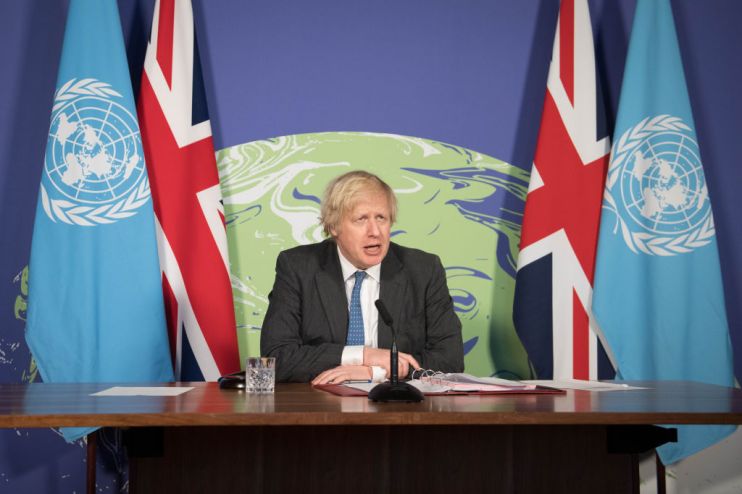The Treasury’s narrow-minded Net Zero review is holding back Boris Johnson’s climate agenda

Some truisms are worth repeating: the Treasury is powerful. Unlike its counterparts overseas, the Treasury in Britain is ale to set policy for economic development and control government spending. This power, however, is also an impediment on progress. It is one of the slowest Whitehall departments to change its ways and is holding back the government’s green agenda.
Many things within government will need to change to reach a truly net zero economy. The Treasury and the Chancellor should be leading this, making sure the UK sees the full economic benefits. It should not have to be dragged kicking and screaming.
In 2019, under Sajid Javid’s tenure as Chancellor, the Treasury promised a net zero review, which is expected any day. This “first of its kind from a finance ministry” was designed to assess how the government can make the most of the economic opportunities and benefits of net zero, and what a green economy could look like.
There are mounting fears this review has been constrained to look only at “upfront costs”, something that would damage UK progress on climate action in the short term and undermine the potential for economic gains. Focusing solely on costs could play into the hands of climate sceptics. Public support for environmental action is widespread but potentially fragile. A central pillar of government sending the message that net zero is a burden could make others wary, and blinker politicians and the public to all of its advantages, including jobs, health and innovation.
Without the Net Zero Review, ministers are effectively trying to accelerate this huge change for society in an old banger with half a tank and an outdated AA Road Atlas.
The focus on costs alone ignores the direct gains from the new jobs in green industries, many of which are in parts of the country left behind. There are also real savings for society in having a greener economy, cleaner air and healthier people. Fewer sick days lost to physical or mental health will boost productivity, but there are many more.
Without a guiding document, the Treasury is making policy for the rear-view mirror. Take the so-called super-deduction, a 120 per cent tax relief for businesses to invest, announced in this year’s budget. Without guidance, funds could go to high carbon equipment that will become stranded assets. But, with net zero embedded into policy, this £24 billion tax break could help businesses improve resilience and prepare for a green future.
We are also failing to use the tax system well. According to the National Audit Office, there is £17 billion a year in tax reliefs currently working directly against the government’s environmental goals.
The Treasury is also key to getting the UK on track for its climate targets. Annual spending on net zero needs to double within this parliament. The Treasury rightly needs to work out where this money comes from, but the longer it takes the higher the costs get. The review could point to where targeted spending will drive green sectors.
A Rolls-Royce review (electric, of course) would look at all costs and benefits that matter to the public, underpinning the government’s levelling up agenda. Fairness must be central to decarbonising, spreading success so that all groups or regions benefit. Recent updates to the Treasury’s decision-making bible, the Green Book, were a step in the right direction, referencing environmental metrics and regional inequality. But a bigger signal would be if the new UK Infrastructure Bank focused on job creation, carbon reduction and health, not just financial returns.
In the same way the Treasury was centre stage in the pandemic response, it now has a chance to lead on our climate response. A green shift in the Treasury needs to happen. Rather than spluttering behind in an old diesel, the UK should race ahead to deliver political and economic benefits for the public.